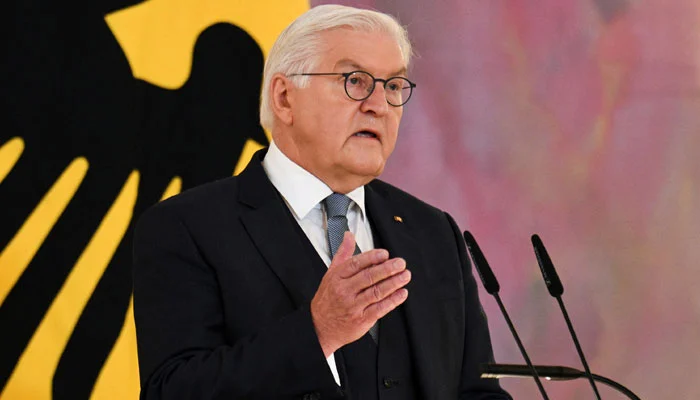Berlin: German President Frank-Walter Steinmeier Dissolves Parliament
On Friday, German President Frank-Walter Steinmeier announced the dissolution of Germany’s lower house, the Bundestag, to pave the way for snap elections on February 23. This move follows the collapse of Chancellor Olaf Scholz’s three-party coalition after the government lost a confidence vote in parliament.
Need for Stability and Effective Governance
Steinmeier emphasized that “especially in difficult times, stability requires a government capable of acting, and reliable majorities in parliament,” making early elections the right way forward for Germany. He added that after the elections, politics must refocus on problem-solving.
Election Campaign Transparency
The president also stressed the importance of conducting the election campaign fairly and transparently, warning that external influence—whether covert, like in recent Romanian elections, or overt, as seen on social media platforms like X—poses a threat to democracy.
Scholz’s Government Struggles
Chancellor Olaf Scholz, who will lead a caretaker government until a new one is formed, lost a confidence vote in parliament earlier this month after Finance Minister Christian Lindner’s Free Democrats withdrew from the coalition, leaving the government without a parliamentary majority.
Election Campaign and Opposition
Election campaigning has ramped up, with conservative challenger Friedrich Merz claiming that the incumbent government has imposed excessive regulations that stifle growth. Conservatives hold a more than 10-point lead over Scholz’s Social Democrats (SPD) in most polls.
Impact of Far-Right Parties
The far-right Alternative for Germany (AfD) is slightly ahead of the SPD, while the Greens, a coalition partner, are in fourth place. Mainstream parties have refused to govern with the AfD, but its presence complicates parliamentary arithmetic, making fragile coalitions more likely
German President Dissolves Parliament to Pave Way for Snap Elections
Keep Reading
Add A Comment



